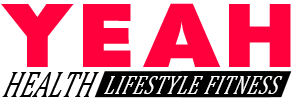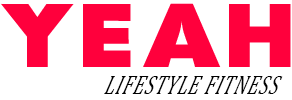Though it’s unnerving to see paramedics rush right into a train facility, it does occur from time to time. Exercisers who cross out from not consuming sufficient or who insist on “working by way of the ache” with an harm that hasn’t fairly healed — amongst different harmful fitness center practices — could discover themselves taking the fast path to the emergency room. Happily, most fitness center accidents are minor mishaps and outcome solely in wounded delight, like if you journey over your personal step in an aerobics class.
Following a couple of easy tips, nonetheless, could enable you to keep away from turning into a extra critical statistic. Listed below are seven doubtlessly harmful errors that well-meaning exercisers typically make on the fitness center and tricks to stop them from occurring to you.
7 Harmful Health club Practices That May Get You Injured
1. Not Utilizing Correct Type
Many individuals push too onerous, particularly after they first begin out. “To start with, do lower than you suppose you’re in a position to do,” says Richard Cotton, train physiologist and spokesman for the American Council on Train. “You may’t ‘go to failure’ on an train you probably have lower than a six-week power coaching base. Inactive muscle groups will not be as powerful as lively muscle groups.” If in case you have a pencil-pushing job, don’t anticipate to hit the fitness center and dive right into a no-holds-barred train routine instantly — extra isn’t essentially higher.
Your answer: Permit your self six weeks of weight coaching to determine a base earlier than pushing onerous. Rent an authorized private coach to be taught correct type and development or take a weight coaching group class.
2. Ignoring a Weak or Injured Space
“Some individuals use train as punishment for not having exercised,” says Cotton, “so that they’ll typically ignore ache and find yourself injuring themselves.” Somebody with a weak again will get on a rowing machine, for instance, as a substitute of one thing extra accommodating, like a recumbent bike.
Your answer: Modify your workouts and/or begin again slowly if you’re recovering from an harm. Search the assistance of a bodily therapist or an skilled coach for methods to change your routine to accommodate a weak or lagging space. Avoiding the chest flye and performing solely a partial chest press, for instance, could also be really helpful should you’re recovering from a rotator-cuff pressure. In the event you injure your self in the identical areas repeatedly, you could must fully keep away from sure workouts till you’ve fully healed.
3. Not Consuming Sufficient Energy
Exercisers who mix a troublesome exercise with poor caloric consumption within the hopes of shedding weight are setting themselves up for dizziness, fainting and typically nausea. “It’s a fallacy that figuring out on an empty abdomen burns extra energy,” says Karen Brewton, a registered dietician for Methodist Hospital Wellness Companies in Houston, Texas. “You’re not fueling your physique if you want it. The primary meal of the day jump-starts your metabolism.”
Your answer: Don’t skip meals and eat each few hours. “Yogurt makes an amazing pre- and post-exercise meal,” says Brewton. And it’s an excellent alternative to get the calcium it’s worthwhile to stop osteoporosis. “While you’re watching your weight and decreasing energy, it’s worthwhile to take note of good-quality energy.”
4. Not Going for That Medical Checkup
“Most individuals get a well being checkup earlier than beginning an train program provided that they’re older or have signs,” says Duncan. “Younger girls who really feel okay suppose they’re immune, however they will not be.” If in case you have a household historical past of coronary heart illness, a routine stress check could not even be sufficient to detect an issue.
Your answer: Know your loved ones historical past. “If somebody in your loved ones has coronary heart illness at a younger age [less than 55 for men and less than 60 for women] — particularly a mum or dad or sibling — you’re at elevated danger it doesn’t matter what your weight and blood strain,” says Dr. Dennis Goodman, a senior board-certified heart specialist at Scripps Memorial Hospital. “Early testing for at-risk people ought to begin at 18. Everybody ought to have ldl cholesterol screening beginning at 20, no matter their danger.”
5. Not Paying Consideration to What You’re Doing
Speaking in your mobile phone whereas strolling — or working — on a treadmill or turning your head to talk to a buddy can ship you flying off the machine with a wrenched again or damaged wrist — or worse. “The tragedy is that this harm could also be sufficient to forestall you from exercising for six weeks,” says John Duncan, an train Physiologist and founder and CEO of ViaScan in Irving, Texas. “Accidents are the primary motive why individuals discontinue their train applications.”
Your answer: Give attention to the duty at hand. Previous to getting on a treadmill, verify to make sure that the final individual didn’t go away it working. (This actual accident occurred at an area fitness center just lately, leading to a head harm.) Go searching for puddles of sweat or different “highway hazards.” Depart your mobile phone in your locker or at house. If somebody begins a dialog with you whilst you’re lifting weights, ignore them till you end. Higher to elucidate afterward why you possibly can’t discuss in the course of hoisting weights over your head than to have to elucidate it to your orthopedist.
6. Copying One other Exerciser’s Type
Selection is essential if you wish to proceed to see progress in your health routine — that’s, until you’re getting your new train concepts by watching different individuals on the fitness center who could not know what they’re doing.
“You haven’t any method of figuring out if it’s that individual’s first week on the fitness center or not and should you’re emulating somebody who’s doing the strikes incorrectly,” notes Duncan. Additionally, keep away from unsolicited recommendation until it’s from a certified skilled.
Your answer: Some workouts, like deadlifts or squats, ought to be relegated to those that actually know what they’re doing or who’ve had skilled instruction in performing the strikes appropriately. Rent an authorized, skilled private coach that can assist you carry out the workouts with right type to reap the complete advantages of any routine and keep away from harm.
7. Not Taking the Crucial Break day for a Chilly or Flu
To your sake and the sake of different fitness center members, keep house should you’re hacking, sneezing or coughing. Leaving a path of undesirable microbes on benches and gear and within the air is a detriment to the wholesome individuals round you. As well as, you could make your self worse with a strenuous exercise.
Your answer: In case your signs manifest from the neck up (resembling sneezing or a runny nostril) within the absence of fever and physique aches, the final rule is that you simply’re in all probability effectively sufficient to carry out a modified exercise.
“Though the infectious stage has handed [you’re most infectious just before the symptoms become overt], it’s smart to attend per week earlier than returning to the fitness center,” says Dr. Jacob Teitelbaum, medical director of the Fibromyalgia & Fatigue Facilities. “Then work your method again as much as your earlier exercise degree over one or two weeks.” In any other case, you probably have a fever, muscle aches and different flu-like signs which can be “beneath the neck,” physicians suggest resting till the signs subside.







